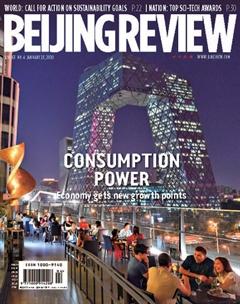Automotive Hub Eyes World’s Top Wheel Powers

The Ningbo Hangzhou Bay New Zone, a coastal area in Zhejiang Province in east China, is a strategic hub for various cutting-edge manufacturing sectors.
The automotive industry, with an industrial cluster of five assembly lines and over 100 auto parts manufacturers, has become a major driving force for the areas economic growth and intelligent transformation in recent years.
Automotive firms are stepping up efforts to expand their presence in the new zone. The most recent case is the Zhejiang Geely Holding Group and German carmaker Mercedes-Benz, who announced creating a joint venture for their smart brand in the area.
The Geely Auto Group, a subsidiary of Zhejiang Geely, recently decided to relocate its headquarters to the area.
Yang Xueliang, Vice President of the Geely Auto Group, attributed the moves to the areas accommodating advanced manufacturing enterprises, particularly auto parts companies with worldwide competitiveness.
“The new zone has released a development plan on the automotive industry, which encourages more technological innovationoriented auto parts fi rms to settle in the area and lays a solid foundation for our development,” Yang said.
The new zone plans to assemble more than 40 of the worlds top 100 auto parts firms and increase the output of its automotive industry to 400 billion yuan ($57.96 billion) and vehicle production to 2 million units by 2025.
Holding high hopes for the new zones pursuit of technological innovation and intelligent manufacturing, SAIC Volkswagen, a Sino-German joint venture between Shanghai-based SAIC Motor Corp. and the Volkswagen Group, has built a factory there with a production network based on Industry 4.0, while Geely has established a research and development (R&D) center as an essential part of its global R&D network.
“Both the Ningbo Municipal Government and Hangzhou Bay New Zone authorities have established a good environment for investment with high administrative efficiency and excellent services,” Yang said, adding that such an environment is a crucial reason for Geely expanding its business in the area.
Cai Shijie, deputy director of the administrative committee of the new zone, said the area has established a mechanism and command center to regulate the services for automotive companies. The command center has been in operation for 10 years.
“We rely on offering a hospitable environment and abiding by investment agreements to attract more automotive enterprises,” Cai said.
Considering automotive firms growing appetite for talents while striving for technological upgrading and intelligent transformation, Cai said more efforts would be made in the future to develop the new zone into a global talent hub for auto manufacturing.
Looking ahead, Yang envisions the new zone to be a world-leading industrial center for automotive development, manufacturing and marketing like Detroit in the U.S. and Germanys Stuttgart.
“This might take some time, but the odds are very high in the light of the current development pace and all the efforts that are being made,” he added.

